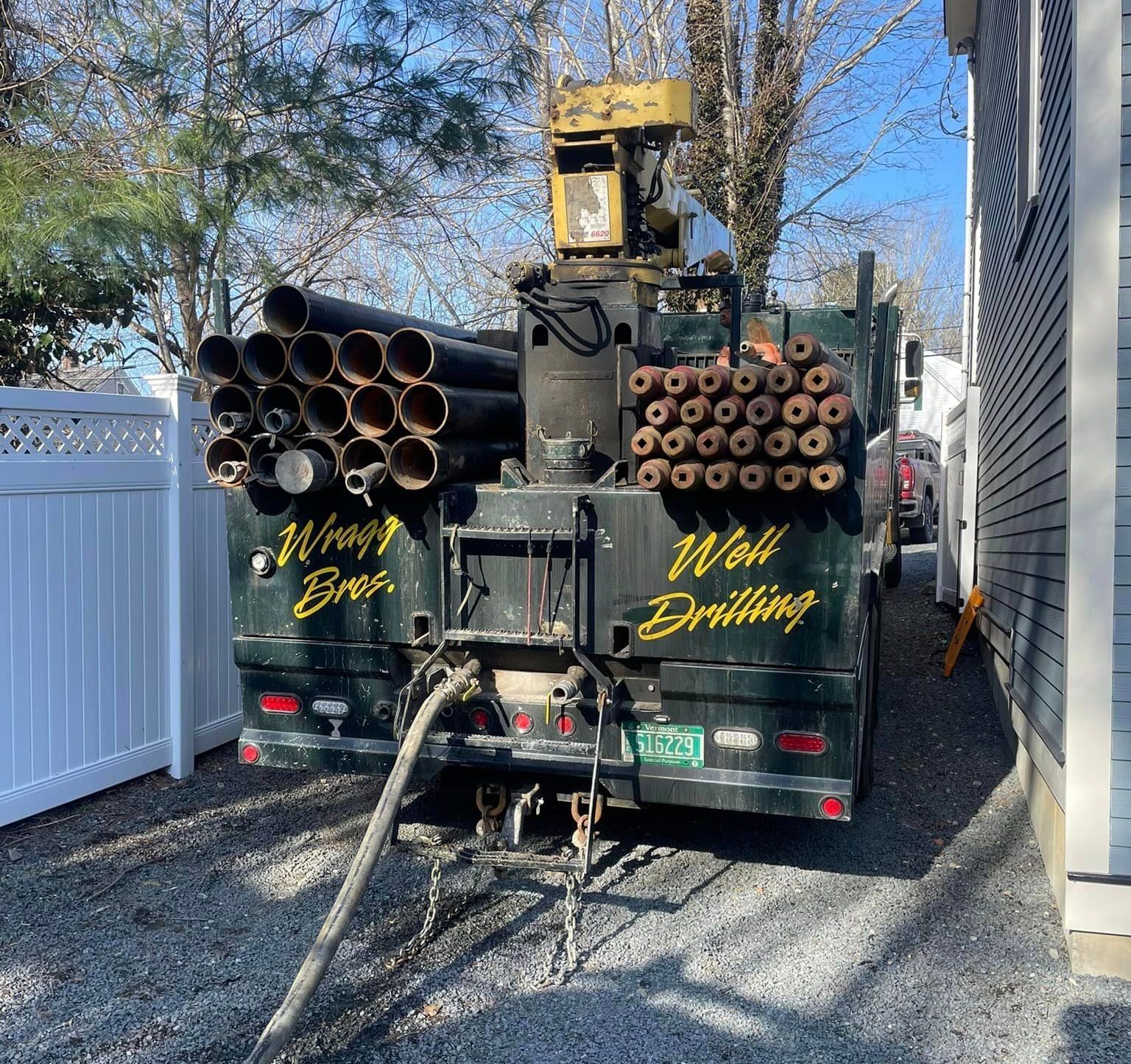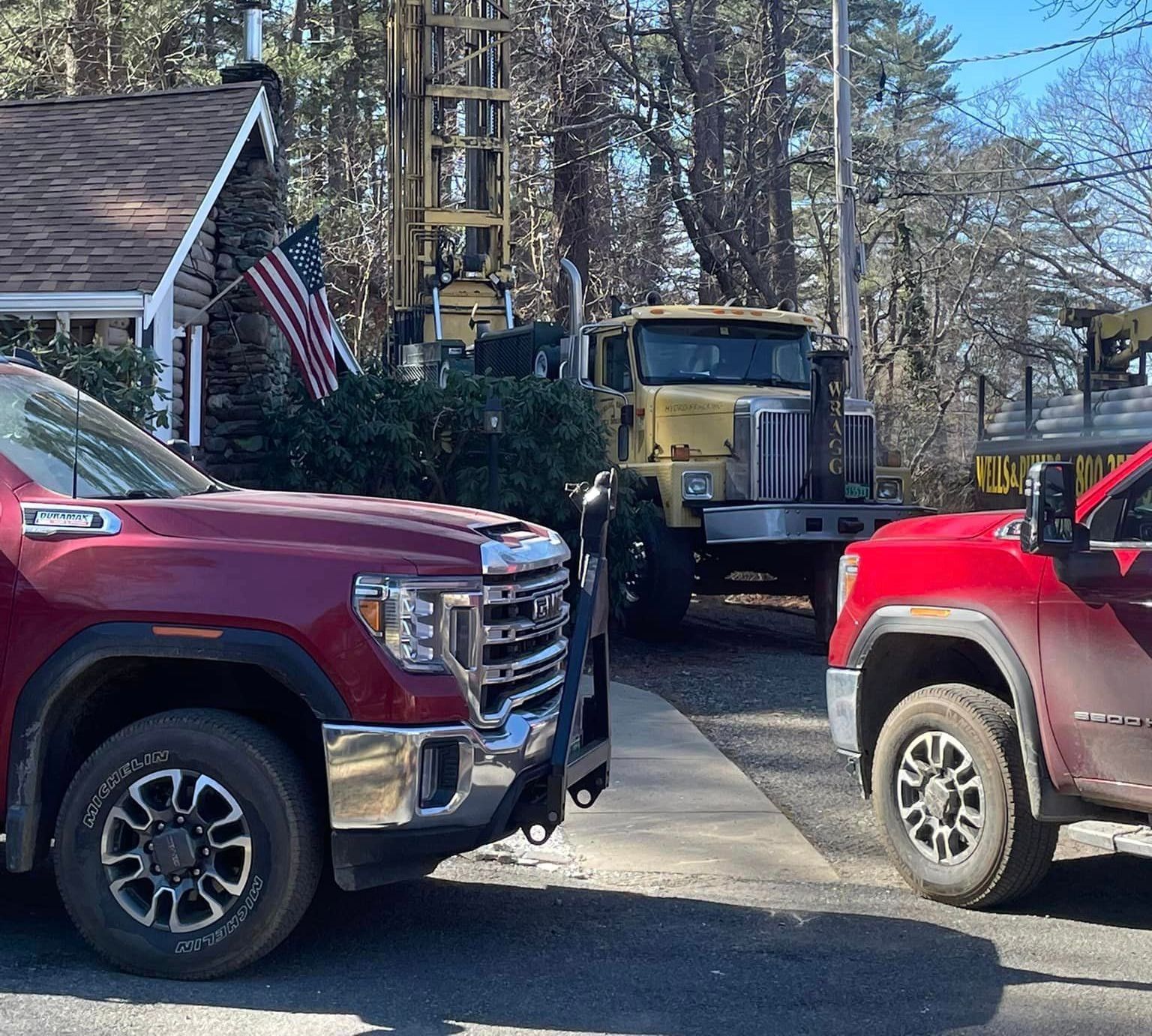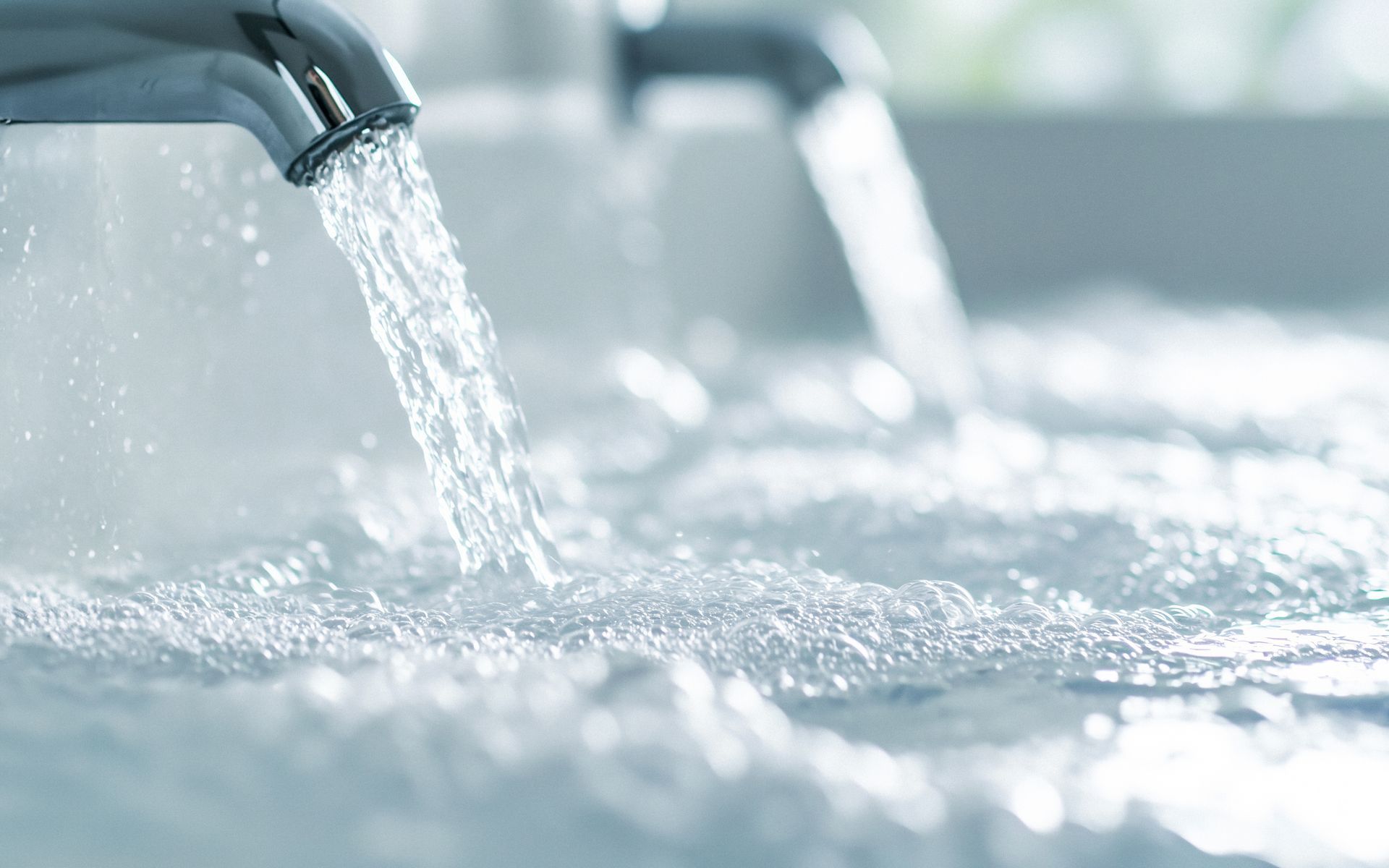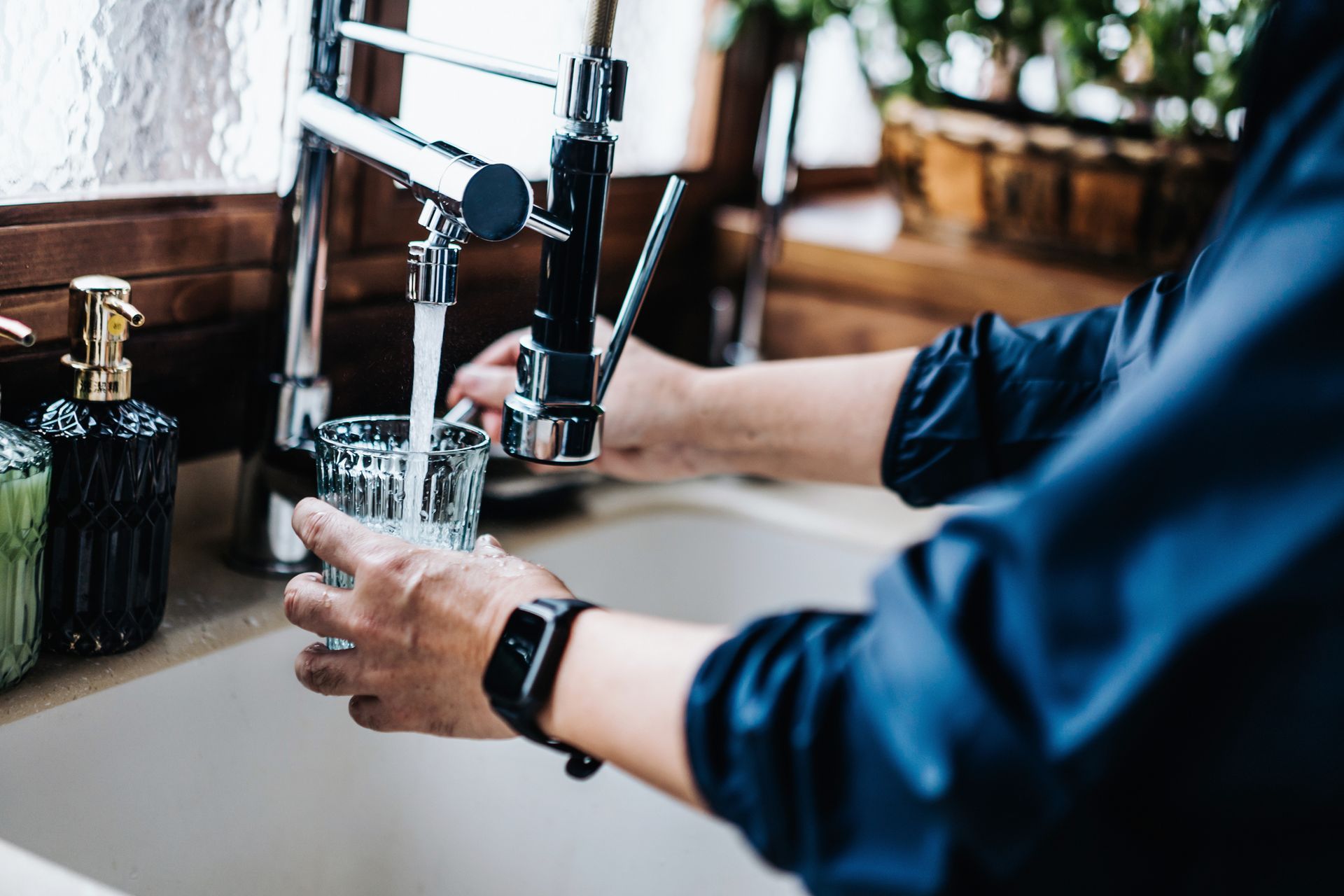Water treatment, water testing, well drilling and hydro-fracking services for VT, NH, and MA.
Do you need emergency well water service?
A Guide to Drilling and Maintaining a Safe Water Well in NH and VT
Planning and Constructing a Private Drinking Water Well
When planning a private drinking water well, determining the well’s purpose is crucial. A water well is a drilled hole into an aquifer designed to extract water using a system with a pipe, screen, and pump. Whether it’s for drinking water, irrigation, or industrial use, knowing your needs ensures the proper construction and consistent water supply. Proper well construction is vital to ensure a reliable water source and maintain water quality. This initial planning stage lays the groundwork for a successful project.
Before you start drilling, research local regulations and obtain the necessary permits. Each region may have specific guidelines, and adhering to them helps avoid legal issues down the line. A licensed and experienced well driller is essential for proper construction and ongoing maintenance. Their expertise ensures your well meets all safety and functionality standards. Understanding groundwater conditions is also important for proper well location and construction.
In choosing the type of well, consider options like dug wells or drilled wells and their components, such as casing, screen, pump, and pipe. These elements are critical for a safe and reliable private water supply. Consult the local health department for guidance on well construction that aligns with local geological and groundwater conditions.
Choosing the Right Well Location
Selecting the right location for your well is vital to prevent contamination. Ensure the spot you choose directs rainwater away from the well, reducing the risk of pollutants seeping into your water supply. Proper placement safeguards your drinking water from potential hazards.
Avoid areas near septic tanks, toxic material spills, or other sources of contamination. Proximity to these hazards can compromise the quality of your water, making it unsafe for consumption. Being mindful of your well’s surroundings is essential for maintaining a clean and healthy water supply.
Consider the land surface and surrounding geology when choosing your well location. Targeting the right groundwater source is crucial for a dependable water supply. Consulting with local health departments and water system professionals can provide valuable guidance on well location and construction, ensuring your well meets all safety and regulatory standards.

Drilling a Well
Using rotary drilling machines, you can effectively drill wells that tap into either shallow water or deeper groundwater. Private water well systems are a modern and expertly constructed method for accessing groundwater for various uses, such as drinking and irrigation.
Proper well construction and maintenance are crucial to prevent contamination and ensure a safe water supply. Always follow local regulations and guidelines for well drilling and construction to avoid any legal issues. Consider the type of well—whether it’s a shallow well, deep well, or artesian well—and its components to ensure a safe and reliable private water supply.
Maintaining a Safe and Reliable Private Drinking Water Wells
Regular inspections and maintenance of your well and its parts will prevent contamination. By checking your well regularly you can fix problems before they affect your water supply. Regular water testing is also important to make sure the water is safe to drink. Testing water helps you catch changes or contaminants early so you can take action fast. Plus knowing the different types of private drinking water wells as defined by the U.S. Geologic Survey will give you more insight on how to manage your well.
Keeping records of well maintenance and water testing is a good practice that will help you manage your water supply in the long run. These records will be useful for future reference and for compliance with local health regulations. Having a maintenance schedule will also ensure your private water supply is safe and reliable for years to come. The Water Systems Council has educational resources and diagrams on private water wells for well owners.
So you can feel safe and sure with your private water supply. Drinking Water Safety
- Test the water for bacteria, chemicals and other contaminants regularly.
- Follow well construction and maintenance practices to prevent contamination.
- Consider getting a water treatment system for safe drinking water.
- Talk to local health departments and water system experts for advice on drinking water safety.
Decommissioning an Abandoned Well
Plugging abandoned wells is essential to prevent contamination and ensure public safety. Neglected wells can become conduits for pollutants to enter groundwater, posing risks to the environment and nearby water supplies. Following local regulations and guidelines for decommissioning is crucial to ensure the process is done correctly and safely.
Consider hiring a licensed professional to decommission the well, as they have the expertise to ensure the well is properly plugged and sealed. This step is vital to prevent future contamination and to maintain the integrity of the groundwater system.
Reasons to Plug Abandoned Wells:
- Prevent contaminants from entering the groundwater.
- Protect nearby private and public water supplies.
- Avoid accidents involving humans or animals falling into unsealed wells.
- Comply with local health and safety regulations.
- Maintain the environmental integrity of the surrounding area.
By taking these steps, you ensure that abandoned wells do not pose a risk to public health or the environment.
Common Issues and Solutions
Water quality issues like bacteria and chemicals are huge. Proper well maintenance and regular water treatment will solve these problems. Installing water filters and disinfecting the well every now and then is being proactive to keep your water clean and safe to drink.
Managing septic tanks and other potential contamination sources is another big one. Make sure to put septic tanks and waste disposal systems far from the well. Regular inspection and maintenance of septic systems will prevent leaks and seepage that can contaminate the water. Keep hazardous materials and chemicals away from the well area to prevent accidental contamination.
Drought and water scarcity needs careful planning and resource management. During dry times wells may produce less water so conservation is key. Water saving techniques and possibly drilling deeper wells or additional storage tanks can help mitigate drought.
Find resources and support for well maintenance and water testing like local health departments and water system professionals to help you manage these issues.
Contact Wragg Brothers Well Drilling for Your Water Well Needs
Ensuring your water well is safe, reliable, and efficiently maintained is crucial for a healthy water supply. For all your water well needs, trust the experts at Wragg Brothers Well Drilling. With years of experience and a commitment to quality, Wragg Brothers offers comprehensive services from well drilling to maintenance and decommissioning.
Don’t leave your water supply to chance. Contact Wragg Brothers Well Drilling at 800-255-5890 today to speak with a knowledgeable professional who can guide you through every step of the process. Wragg Brothers Well Drilling can help you achieve a safe and reliable water well system. Your water well is in good hands with Wragg Brothers!
Frequently Asked Questions
How do I determine the best location for my water well?
Choosing the right location involves ensuring the site prevents rainwater runoff towards the well, avoiding areas near septic tanks or potential contamination sources, and consulting with local health departments and water system professionals.
What is the difference between dug wells and drilled wells?
Dug wells are typically shallow and manually excavated, while drilled wells are deeper and created using rotary drilling machines. Drilled wells often provide access to more reliable and cleaner groundwater sources.
How often should I test my well water quality?
It's recommended to test your well water quality at least once a year for contaminants like bacteria and chemicals. Regular testing helps ensure your water remains safe for drinking.
Why is it important to properly decommission an abandoned well?
Properly plugging abandoned wells prevents contaminants from entering groundwater, protects nearby water supplies, prevents accidents, and complies with health and safety regulations. Hiring a licensed professional ensures the well is sealed correctly.
All Rights Reserved | Wragg Brothers Well Drilling



